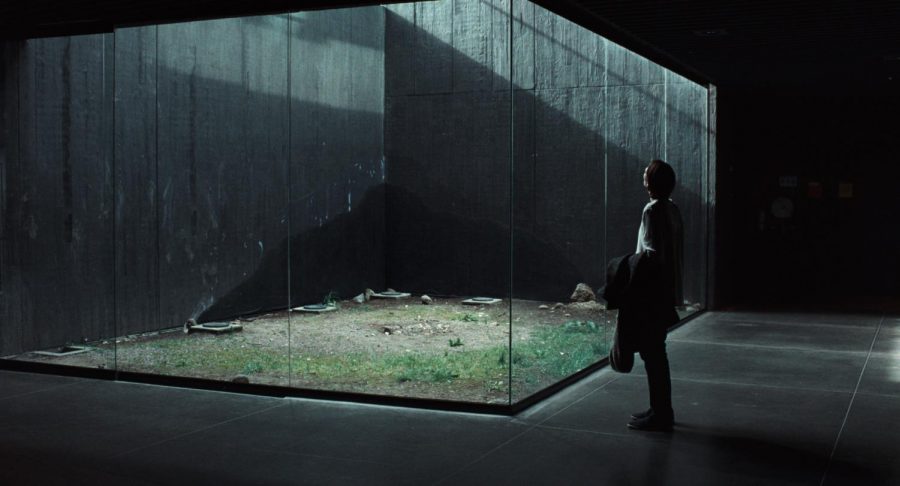Review: ‘Memoria’ is hauntingly immersive
In his first film produced outside of Thailand, Apichatpong Weerasethakul paints a stunning picture of Colombia.
“Memoria” is director Apichatpong Weerasethakul’s latest feature film. The movie is a beautiful and deeply thoughtful journey through Colombia. (Image courtesy of Neon)
October 28, 2021
“Memoria,” Apichatpong Weerasethakul’s latest feature film, follows Jessica (Tilda Swinton), who is haunted by a loud, consistent bang that only she hears. As she tries to find the cause of this disturbing sound, she slowly loses her memory and sense of identity.
It is worth taking a trip to the theater to watch this, where you can experience the film’s sound as the filmmakers intended. Weerasethakul insists that the cinematic experience is crucial to watching the film. NEON, the film’s distributor, seems to share this belief: their decision to withhold the movie from streaming services and DVD is unconventional. Instead, it will be shown on a tour, where the film will be screened in a different city every week, ensuring that audiences will experience the film in the way Weerastethakul wanted.
With its slow, meditative structure and long silent takes, “Memoria” almost dissolves time, transporting you into a mysterious dreamscape set in Colombia. During a pensive two hours and 16 minutes, Weerasethakul implores us to contemplate the mystery of Jessica’s affliction.
Just like Jessica, who visits the country as a foreigner, Tilda Swinton is also a visitor to Colombia. Despite having very little dialogue, Swinton provides a stimulating performance — a stunning one, even, considering the fact that there is dialogue written in a language that she does not speak. Swinton’s own distance to the language brings an additional layer to her portrayal of the character. We follow Jessica’s disorientation as a Scottish foreigner; with rudimentary Spanish-speaking skills, she struggles to communicate her anguish.
Weerasethakul himself is also far from home in Colombia. “Memoria” is the director’s first feature film produced outside of his home country, Thailand. The loss of control that Jessica feels is closely linked to the director’s own sense of vulnerability as a foreigner.
However, this distance from home doesn’t stop Weerasethakul from exploring the film’s setting, from its culture to its landscape. Colombia, which is my home country, was given a faithful depiction in the film, forming the perfect backdrop to follow Jessica’s story. Different sides of Colombia are shown: the film explores both the urban and pastoral parts of the country — filming in the country’s capital, Bogotá, and in the small, rural mountain town of Pijao.
As the film goes on, the plot blurs and becomes secondary to the sound. Jessica’s inability to understand the Spanish language results in an increased sensitivity to sounds other than human speech. Aside from the mysterious sound that she continues to hear in her head, the film’s soundscape is rich with a variety of background noises that authentically portray Colombia. From the machine hums and car alarms of the city to the heavy rainfall of the jungle, “Memoria” sets up a truly immersive auditory experience that expertly uses sound design to create emotion.
Because of its slow and contemplative structure, “Memoria” certainly requires patience from the viewer, but Weerasethakul builds a deeply thoughtful, almost magical experience that is worth the restraint.
Contact Valentina Arrieta at [email protected].
























































































































































